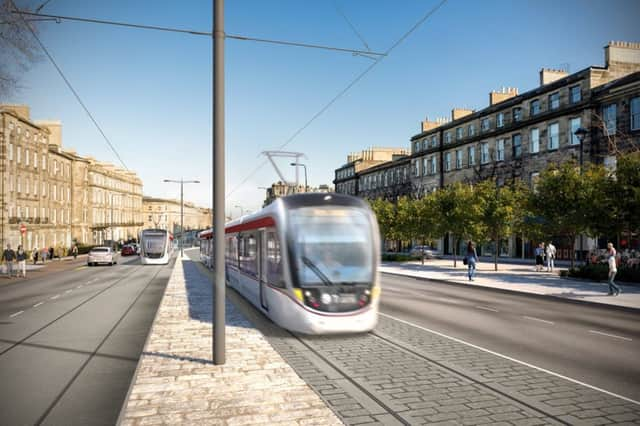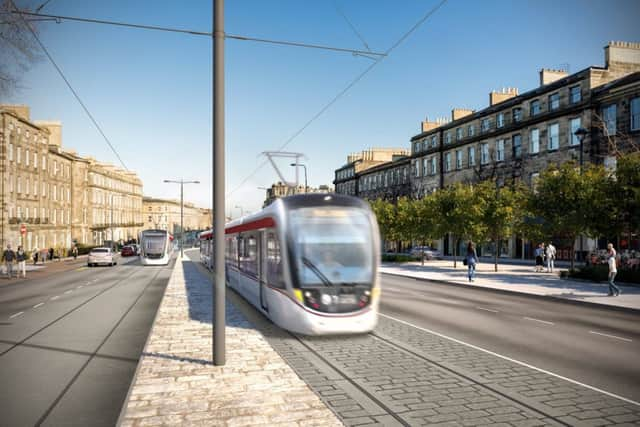Bodies may have to be exhumed to make way for Edinburgh trams


City of Edinburgh council have launched a six-week consultation process on the expansion of the controversial tram line down Leith Walk, but under current proposals, an excavation of the burial ground at South Leith Parish Church would have to be undertaken before work can begin.
It is understood thousands of men, women and children were buried at the site on Constitution Street between the 14th and 17th centuries.
Advertisement
Hide AdAdvertisement
Hide AdWorkers at the “archaeologically rich” site have previously uncovered historic findings. In 2008, tram workers digging in the area found a number of well-preserved human remains thought to be at least 200 years old.


Tentative plans put forward by the authority for the work – which will get under way in mid-2019 if approved in the autumn – also involve deconstructing and completely rebuilding an A-listed, 18th-century wall surrounding the graveyard.
The boundary of the burial site previously ran right across Constitution St before it was laid down in 1790, when the wall was erected to separate graves from the street level.
A council spokeswoman said, in the event of any excavation, the bodies would be carefully curated by the council along with their established collection of archaeological remains – including human remains from other digs within Edinburgh.
Part of the consultation is also set to include further discussion on potential financial reparations for businesses situated along the route of the tram works.


Plans for the expansion include closing three lanes of road to traffic on Leith Walk for up to 18 months while work is ongoing, but local traders were furious over a potential catastrophic drop in footfall for the area.
However, project director Rob Leech has suggested compensation in the form of rates relief or money from a set fund could be allocated to businesses as a means of offsetting a loss of income.
Mr Leech said: “There is a very direct impact to businesses on Leith Walk and Constitution Street and we are looking at some form of financial support to underpin that.”
Advertisement
Hide AdAdvertisement
Hide AdHe added: “There will be instances where, particularly with smaller businesses, there will probably need to be some sort of financial support and we certainly have not ruled that out at this stage.”
The council’s transport convener, Lesley Macinnes, said: “When the outline business case was approved in September, we pledged to establish mutually beneficial relationships with local residents and businesses who would be most affected by works.
“We’ve been working very closely with the local community and our partners ever since to model traffic management plans and look at options for supporting businesses as much as possible if the project goes ahead.”